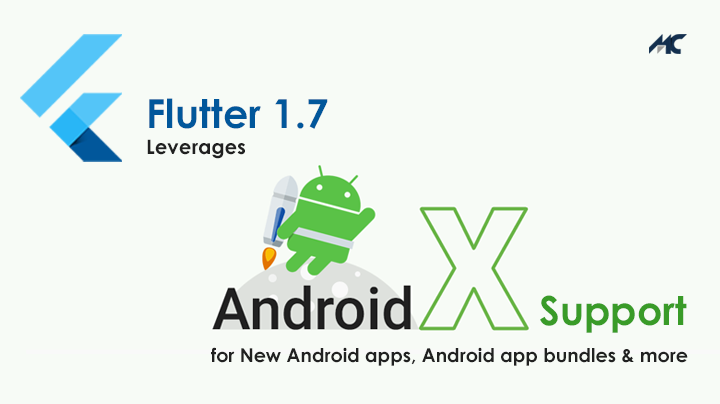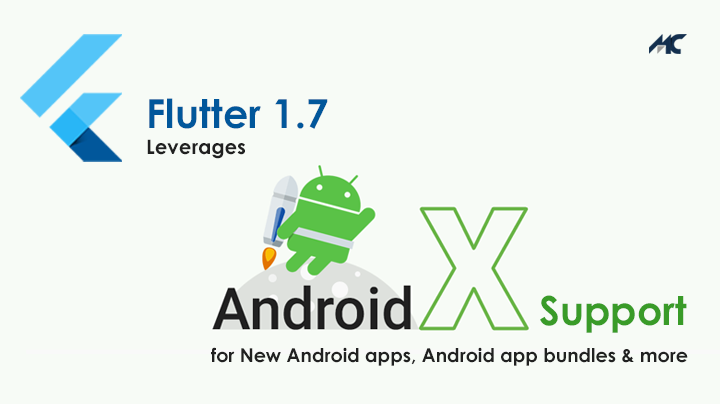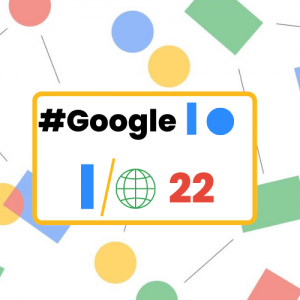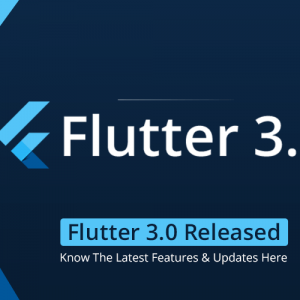Flutter 1.7 Leverages AndroidX Support for New Android Apps, Android App Bundles, & More
Google’s UI framework, Flutter is a front-runner among popular mobile app development frameworks with almost 70,000 stars on its GitHub repository. The recent release of Flutter 1.7 version brought some important updates & add-ons to keep an eye on. The newest version rolled out with some new components, upgrades, & bug fixes with a package of testing updates to create interactive mobile apps.
Since the launch of FLUTTER 1.5 version, the mobile app development team has been making all possible efforts to dissolve the procuring issues raised in around 1,250 reports. Thanks to Flutter’s Product Manager, Tim Sneath who dubbed the newest version with a bundle of optimized updates available now. You can easily dwell into the Flutter 1.7 version if you already have Flutter on your system by running an upgrade. Let’s get into the deep discussion to get some detailed insights into the latest update:
-
AndroidX Support for New Apps
Flutter 1.7 brings AndroidX support and it is an interesting update for Android app developers. Those who’re new to AndroidX must know that it is an open-source support library brought by Jetpack team. Though the upgraded version supports AndroidX, it will simplify the task of updating an Android app if it is built using Flutter framework without getting on in backward compatibility feature.
It simply means that you will save your time & efforts leveraged in integrating multiple components of the Android system. With the release of Flutter 1.7 version, programmers found one more reason to go for this framework for Android app development.
-
64-Bit Android App Support & AAB
Android apps that use native codes & focus on Android 9 Pie will be required to come up with a 64-bit version along with a 32-bit version in order to match the guidelines for deployment on Google Play Store and this will be applicable from August 1st, 2019. Knowing that Flutter apps are based on native codes, developers are required to fold their sleeves as the recent updates will affect the submission process of Flutter apps. The 1.7 version comes with updates that extend support to app bundles & APKs with compatibility for both 32-bit and 64-bit binaries. Considering the release, you must be using this framework to create premium quality Android apps with cross-support for 32-bit as well as 64-bit CPU architectures.
-
OpenType Rich Typography Features
The Flutter 1.7 version puts emphasis on typography support. It is quite obvious to say that this update will empower mobility experts & enable them to work on UI with the inclusion of enhanced typography for better user experiences. Enhanced typography means that you will be using elements such as slashed zeros, tabular, stylistic sets, old-style numbers, & more add-ons for Flutter app development.
-
1,250 Tirage Issues Resolved
One major pointer to highlight about the newest version is its capability to raise the effective response to customer-reported issues. The arrival of Flutter 1.7 has significantly resolved over 1,250 issues in just a couple of 2 months. Since the Flutter team has been working on expanding staffing in the area of customers reports to get familiar to issues relating to faster-triaging news bugs, handling duplicate issues, & resolving or further redirecting them to StackOverflow.
-
Game Controller Support
The recently released Flutter 1.7 comes up with some accessorial USB HID codes that are unavailable on the Chromium source code. Therefore, you can say that Flutter is all set to favour Game controller support alongside targeting gamepad buttons on Android. For the first time, Flutter came with extended support for game controllers as it was quite tough to write full-fledged codes for building games using Flutter. Also, developers can use platform design samples for coding the components in both iOS & Android design languages.
-
Integration of New APIs & Widgets
Flutter 1.7 prioritizes its ability to support multiple mobile OS as the newest version is determined to become a full-fledged framework for cross-platform mobile app development. One can check out a long list of new components & widgets that are added with the framework to let developers build an app using tools like mobile UI designers & app builders. In this context, a new RangeSlider is also introduced as a material value component with the update that allows users to adjust a fixed range between minimum & maximum value. Another update is associated with an add-on named as SnackBar widget for Flutter app development. Moreover, widgets such as CupertinoDateTimePicker & CupertinoPicker widgets are also brought with Flutter 1.7 for iOS & Cupertino.
A Conclusive Sum Up!
With a myriad of new features, the Flutter UI framework lags a robust bug handling system & support for non-mobile platforms. Even the current version doesn’t focus on non-mobile platforms and supports only Android, iOS, macOS, & other mobile platforms. Anyways, upgrading your system to version 1.7 for Flutter cross-platform mobile app development will be easier by running the flutter upgrade from the command line. One can also reinstall the framework or upgrade it manually for the new installation.
-

 Apple 2022 Full Event Recap
Apple 2022 Full Event Recap -

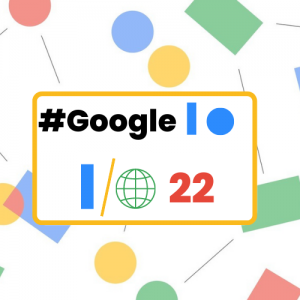 What’s new at Google I/O 2022 for developers: Top Highlights
What’s new at Google I/O 2022 for developers: Top Highlights -

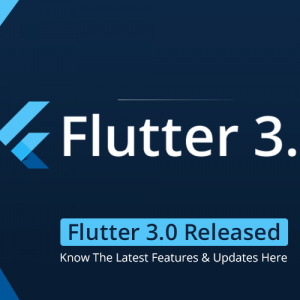 Flutter 3.0 Released: Know The Latest Features & Updates Here
Flutter 3.0 Released: Know The Latest Features & Updates Here




